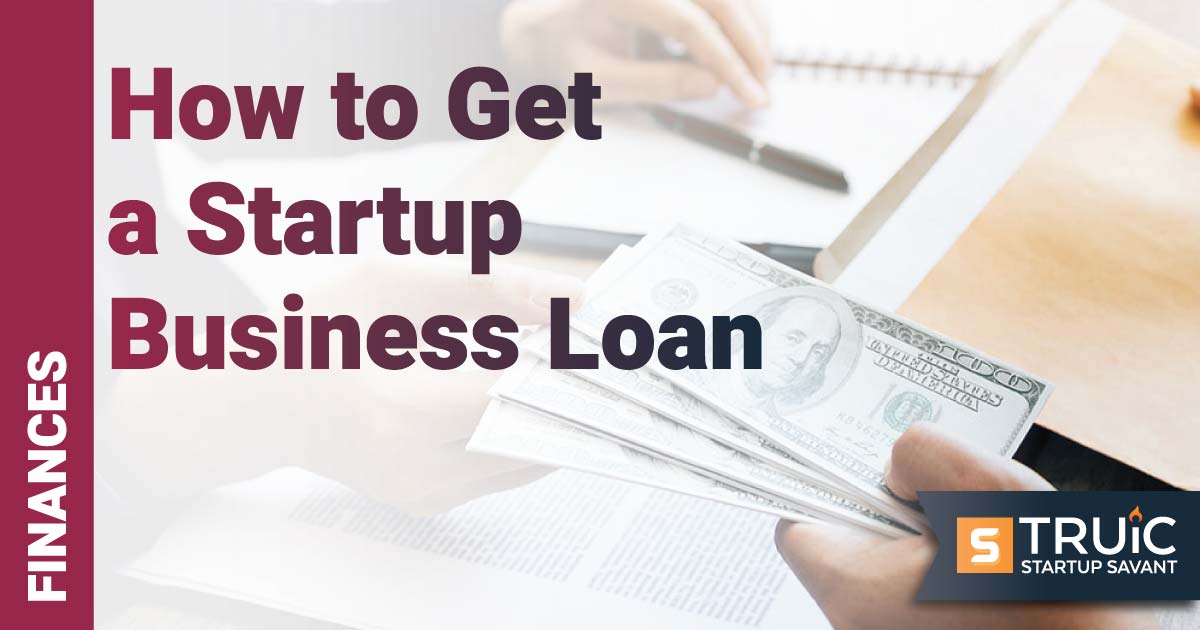How to Get an SBA Startup Loan

Last Updated: By TRUiC Team
Looking for financing to help grow your new business? A US Small Business Administration (SBA) startup loan can provide the affordable capital you need to get your venture off the ground. The SBA partners with lenders to offer low-interest loans with favorable terms for qualified applicants.
This guide provides a comprehensive overview of SBA loans for startups, the application process, and strategies to boost your chances of approval.
Recommended: Search for SBA loans and find other funding options with Uplyft Capital.
SBA Loans for Startups
Before jumping into the application process, it's important to understand what an SBA loan is, how it can serve your startup business, and why it's an alternative to approaching venture capital firms.
What Is an SBA Loan?
An SBA loan is similar to loans from banks and other lenders. However, the SBA guarantees a part of the loan funds to make it more enticing for lenders to finance small businesses.
Why Opt for an SBA Loan?
SBA loans offer businesses — even those with bad credit — an avenue to access funding with government backing and are considered some of the best small business loans.
These loans furnish several perks that make them a favorable choice over relying on venture capital or peer-to-peer lending:
- Competitive Terms: SBA loans frequently come with prime interest rates and extended repayment periods.
- Credibility: Using an SBA loan program can amplify your business's reputation and can be a strategic move if your business meets specific growth targets.
- Flexibility: SBA loans can support assorted business needs — from tackling operational costs to managing startup funding requirements or even pay existing debts.
It's worth noting that startups have several financial options. For instance, the SBA Microloans and Community Advantage loans are becoming increasingly popular small business loan choices while venture capital funding might suit startups with a higher growth potential.
It’s essential to understand your startup’s costs and the funding eligibility requirements in order to determine the right financial path for your new startup business.
Visit our Best Startup Loans review for a look at other business funding options.
Understanding Your SBA Financing Options
Understanding SBA business loans is important when any for-profit business aims to expand, invest, or refinance. From small business loans designed for budding entrepreneurs to larger, SBA-backed loans for expansive projects, the SBA offers solutions tailored to your unique needs.
Find SBA Loans With Uplyft Capital
Use Uplyft’s loan marketplace to find the loans you qualify for – including SBA loans.
Step-by-Step Guide to Getting an SBA Loan
Navigating the process of acquiring an SBA loan can seem complex. To simplify things, we've created a step-by-step guide to help you understand what's involved and how to move forward with your application.
1. Determine Your Eligibility
Before applying, ensure you meet the criteria:
- You operate in the United States.
- You qualify as a small business, according to SBA standards.
- You’ve invested personal time or money into the business.
- You’ve sought other financial resources before turning to the SBA.
2. Explore Different SBA Loan Programs
Navigating the array of loan programs the SBA offers can feel overwhelming. Here's a simple overview to aid your decision-making:
- SBA 7(a) Loan Program: It suits a range of business requirements — from expansion to refinancing current business debt.
- SBA 504 Loan Program: Tailored for businesses that need to purchase assets like real estate or heavy machinery, it ensures low down payments and fixed-rate financing.
- SBA Microloan Program: It’s ideal for startups or businesses with smaller needs, offering loans of up to $50,000.
- SBA Express Loans: These loans ensure swift approval — often within 36 hours — and provide up to $350,000.
- SBA Economic Injury Disaster Loans (EIDL): For businesses impacted by natural disasters or unforeseen events, these loans aid in recovery and bridging financial gaps.
- SBA Disaster Loans: For businesses that have faced unforeseen setbacks from natural calamities, this type of loan aids in recovery and rebuilding efforts.
- SBA Export Express Loans: For businesses aiming to expand their footprint internationally, this loan offers capital to help them break into global markets.
- SBA Guaranteed Loans: While the SBA doesn't lend directly, it guarantees loans made by partner lenders to increase the chances of approval.
Remember, choosing the right loan program will depend on your business needs, growth plans, and financial health. Always consider the specifics of each program and how it aligns with your business objectives.
3. Organize Your Paperwork
Being prepared can make the application process smoother. You should focus on these three areas:
- Business Plan: Provide details about your business goals, strategies, market analysis, and financial projections.
- Financial Statements: This should cover both personal and business-related information, including balance sheets, income statements, and cash flow statements.
- Personal Background Information: Collect your past addresses, names used, criminal record, educational background, etc.
4. Choose the Right Lender
Different lenders might have varying requirements or terms. Consider these two options:
- Banking Institutions: Traditional banks often offer SBA loans.
- SBA-Preferred Lenders: These lenders have a history of processing SBA loans efficiently.
5. Fill Out the Application
Your chosen lender will guide you through the specific SBA loan application process, which might involve:
- Completing the SBA's borrower information form.
- Providing your personal and business tax returns.
6. Await Approval
After you submit your application, the lender will evaluate it and might:
- Assess your creditworthiness;
- Examine your business plan and financial projections; and
- Ask for additional documentation.
7. Understand Your Loan Terms
Upon approval, ensure you understand your loan’s:
- Loan Amount: This is how much you've been approved to receive.
- Interest Rate: This is the rate you'll incur over the loan's life.
- Repayment Terms: This covers the duration of the loan and your monthly payment amounts.
How to Boost Your SBA Loan Approval Chances
When applying for an SBA loan, you need to do more than just fill out forms. Presenting your business in the best possible light can make a difference. Here are some tips to help you improve your likelihood of approval:
- Create a clear business plan. Emphasize how the loan will benefit your business and outline clear objectives.
- Demonstrate a solid credit history. A good credit score speaks volumes about your financial responsibility so it's worth ensuring your records are in top shape.
- Seek expert advice. A third-party perspective, such as from an accountant or business advisor, can provide valuable insights and improve your application.
- Have some collateral ready. Some SBA loans require collateral, which can be assets like property or equipment. Having these ready and documented can be beneficial.
- Stay organized. Keep all your documentation neat, categorized, and ready for review. This shows you're serious and prepared.
- Ask questions. If you’re unsure about any aspect of the application process, don't hesitate to ask. Showing initiative can demonstrate your commitment to success.
Alternatives to SBA Loans
While SBA loans can be helpful for many businesses looking to increase their cash flow, they aren't the only funding option available. If you're not sure these business loans are the right method to fund your business, here are a few alternative options:
Business Credit Cards
Business credit cards are an excellent option for entrepreneurs looking to increase cash flow on a revolving basis. You’ll still pay interest with this type of funding, but only on the amount you spend. Additionally, most business credit cards will replenish once you repay the amount spent.
Business Lines of Credit
Business lines of credit are similar to business credit cards, but they don't involve a physical card you can use for in-person purchases. Lines of credit also are most often revolving, which means instead of having a maximum loan amount, your capital replenishes once repaid. You can typically obtain this type of funding through credit unions or other financial institutions.
Venture Debt
For venture-backed startups, venture debt can be a great way to gain working capital. Lenders like Mercury and specialized lenders offer this type of debt financing for businesses looking to increase working capital or fund their capital expenses.
Other Business Loans
There are many other small business loans available if an SBA loan isn't the right fit for your business. Each loan will involve different repayment terms and eligibility requirements so do your research and compare loan options before applying.
FAQs
What makes an SBA loan different from traditional loans?
An SBA loan is a business financing option where the federal government partially backs the loan, offering more security to approved lenders compared to traditional loans. This makes SBA loans a viable choice for many for-profit businesses.
Who are the primary beneficiaries of SBA loans?
Small business owners seeking funding to either start or expand an existing business primarily benefit from SBA loans. The SBA's definition of small businesses is often based on average annual receipts and average net income.
How does one's business credit affect eligibility for an SBA loan?
A business credit history, reviewed by business credit bureaus, plays a significant role. A minimum credit score, along with business financial statements, can determine your eligibility. Good standing with business lease agreements and existing debt can also be influential.
Why might a business owner provide a personal guarantee for an SBA loan?
Many SBA-approved lenders require a personal guarantee from business owners to ensure they're invested in their business's success. This means the owner's personal credit score and personal financial statements can be evaluated alongside the business's credentials.
Is real estate considered when applying for an SBA loan?
Yes, real estate can be involved in two ways. Businesses can use an SBA loan to purchase real estate, and it can also be considered as collateral (fixed assets) for securing the loan. Some programs, like the 504 Loan, are specifically tailored for real estate purchases.
Where can I find an SBA approved lender for my business needs?
You can reach out to your local SBA office for a list of SBA lenders or SBA-approved lenders in your area. They can guide you to lenders experienced in your business type and needs.
What are the essential documents needed for an SBA loan application?
When applying, businesses often provide business financial statements, a detailed business plan, records of loan application history, and sometimes, a statement of how loan proceeds will be used. Personal credentials might also be needed — especially if a personal guarantee is required.


